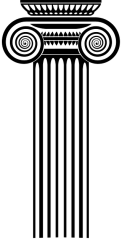By Whitney Matusiak
If you have read my BoldFace post “Three months at a literary agency made me a better editor,” then you’ll remember I figured out a systematic editorial approach that I developed from repetition. I looked at a lot of manuscripts and worked out the steps to increase an author’s chance of getting accepted by an agent and eventually published. When I switched industries from publishing to marketing, that repertoire only got me so far. It was by breaking the editor’s cardinal rule—and nearly making a career-limiting move—during my three months in marketing that taught me to be an even better editor.
Earlier this year I started a contract with a global architectural firm. They had a short-term project for me: something I could quickly sink my teeth into before moving on to another adventure in editing. The project was the firm’s second-annual “best of” publication on design excellence—a collection of 10 projects submitted by people from their offices around the world that exhibited, well, excellence in design. On my first day I was given a stack of project questionnaires that had been filled out by each of the project’s designers. The answers covered the context, design challenges, and technical merit of each project. As the gal tasked with compiling the content for this year’s publication, I thought, “Geez, I’m in heaven. Look at all this content to work with!” So, I worried less about the words and focused on other elements of the publication, like the layout and the marriage of text with image—things decidedly less content related.
While there are a lot of “rules” that editors should, and do, routinely follow, here’s the one that tops my list: what’s written is necessarily what should be published. As a result, I accepted the native content, and made very few changes under the rationale of wanting to preserve the author’s tone and intention. Of course, this seemed logical at the time. I wanted things to go as smoothly as possible—perhaps my strategy would make me more likeable, land me another job, or help me avoid those tense conversations where you have to say to an author, “This is good, but I’d like to help you make it better.”
The project had an author-identity complex of Catch Me If You Can proportions. I wasn’t dealing with a single author/single editor kind of relationship. There were more than a dozen authors and co-authors I had to communicate with in order to get this publication on the shelf. Each author had their own style, jargon, and penchant for dangling participles. I also had to report to a review committee made up of members with their own expectations for the publication. I was overwhelmed before I even started, and the idea of claiming “But that’s the way the author intended it” was the end-of-conversation marker that I had rested my laurels on. When I had compiled all the project write-ups using my minimalist editorial approach, I passed the work off to an in-house copy editor. What I got back were few editorial changes—an A for effort, I guess—and an invaluable piece of advice in the form of a nearly existential question: “Are you proud of this?”
Nope.
To some, the lines between author and editor are clear. I thought they were to me; however, when I re-read the drafts, I realized that while my name wasn’t attached to the project, my reputation certainly was. The writing was clunky in parts and suave in others, formal (except when it was informal), and definitely bordering on boring. I had failed to look at the publication as a whole and, more crucially, examine the three elements that spell success when it comes to the written word: audience, medium, and purpose. What’s written is not necessarily what should be published. I had to break my own cardinal rule.
So, I moved on to round two, which felt more like round 202. With fresh eyes and a new perspective, I saw that there was clearly a lot of work yet to be done—subtle shifts in tense, paragraph transitions, and the arduous task of culling adjectives. Oh, the adjectives. Nevertheless, round two was well worth the extra effort: I learned the value of being accountable to the author, to the audience, and, most importantly, to myself.
Whitney Matusiak is a freelance writer and editor who provides copywriting and substantive and copy editing services for corporate, academic, trade, and lifestyle publications.
This article was copy edited by Alanna Brousseau.
